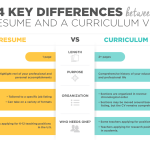In today’s job market, standing out is about more than just technical know-how or hard skills. While hard skills like coding, accounting, or engineering are vital, soft skills are often the difference-makers that can set you apart. Soft skills, often referred to as interpersonal or people skills, are the personal traits and behaviors that dictate how you interact with others. These include communication, teamwork, problem-solving, adaptability, and emotional intelligence.
Employers increasingly value soft skills as they contribute to a positive work environment and organizational culture. While hard skills indicate your ability to perform a task, soft skills reveal how well you can do it while working harmoniously with others. The good news? Soft skills can be effectively showcased on your resume, and doing so can make a significant impact on your career prospects.
Why Soft Skills Matter in Hiring
Soft skills are a crucial factor in hiring because they directly impact how well an employee can perform in a collaborative, dynamic workplace. Here are some reasons why soft skills are highly valued by hiring managers:
- Improved Team Collaboration: Soft skills like teamwork, communication, and emotional intelligence enable you to work harmoniously with colleagues, managers, and clients.
- Leadership Potential: Candidates with strong soft skills often display leadership qualities, making them potential candidates for managerial roles.
- Customer Relations: In customer-facing roles, communication, problem-solving, and patience are key to delivering great service and building long-term relationships.
- Adaptability: With rapid changes in business environments, companies seek employees who are adaptable and can handle evolving roles and responsibilities.
- Conflict Resolution: In any workplace, conflicts are inevitable. Employees with strong conflict resolution skills can de-escalate tensions, creating a healthier work environment.
Key Soft Skills Employers Look For
Employers look for a variety of soft skills depending on the role and the industry. However, certain soft skills are universally appreciated across all fields. Here are some of the most sought-after soft skills:
- Communication Skills: The ability to convey ideas clearly, listen actively, and engage in meaningful dialogue.
- Teamwork: Collaborating effectively with others to achieve common goals.
- Problem-solving: Identifying issues and finding effective solutions to resolve them.
- Adaptability: Adjusting to new situations, changes in the work environment, or unexpected challenges.
- Time Management: Organizing and managing time effectively to meet deadlines and handle tasks efficiently.
- Empathy: Understanding and sharing the feelings of others, which is especially useful in customer service roles.
- Leadership: Taking initiative, guiding teams, and making decisions that benefit the team or organization.
- Work Ethic: Being dependable, punctual, and dedicated to completing tasks to the best of your ability.
How to Identify Your Best Soft Skills
It’s essential to identify which soft skills you possess before you can effectively showcase them on your resume. Here are some strategies to help you identify your strongest soft skills:
- Self-assessment: Reflect on your experiences at work, school, or in other collaborative settings. Consider how you interact with others, handle stress, and tackle challenges.
- Feedback from Colleagues: Ask colleagues, supervisors, or mentors for feedback. They can provide insights into your strengths, whether it’s problem-solving, adaptability, or communication.
- Take Personality Tests: Tools like the Myers-Briggs Type Indicator (MBTI), DiSC Assessment, or StrengthsFinder can help you discover more about your soft skills.
- Analyze Past Experiences: Look at your past work experiences and identify soft skills that helped you succeed in your roles.
- Review Job Descriptions: Review job descriptions in your field to understand which soft skills are commonly required and compare them with your skill set.
How to Showcase Soft Skills on a Resume
It’s one thing to possess soft skills; it’s another to present them effectively on your resume. Here’s how to showcase your soft skills in a way that resonates with hiring managers:
- Use the Right Keywords: Analyze the job description to identify relevant soft skills and incorporate them into your resume. For instance, if a job emphasizes “teamwork” and “problem-solving,” include these terms in your skills or summary sections.
- Highlight in Your Professional Summary: The summary section is a great place to introduce your top soft skills. For example: “Dynamic project manager with strong communication, leadership, and problem-solving skills.”
- Mention in Work Experience: Use bullet points in the work experience section to demonstrate soft skills in action. For example:
- “Led a team of five to complete a client project two weeks ahead of schedule, demonstrating effective leadership and time management.”
- “Resolved customer complaints promptly, showcasing empathy and communication skills.”
- Include in a Skills Section: Create a dedicated section for soft skills in addition to technical skills. For example:
- Soft Skills: Communication, Problem-solving, Teamwork, Adaptability
- Use Metrics and Achievements: Whenever possible, back your soft skills with measurable achievements. For example: “Improved team productivity by 20% through effective communication and delegation.”
Crafting Soft Skills for Different Job Roles
Different roles require different soft skills. Here’s how to tailor your soft skills for specific job roles:
- Customer Service Roles: Focus on communication, empathy, patience, and problem-solving.
- Example: “Resolved customer issues with a 95% satisfaction rate, demonstrating empathy and strong communication.”
- Sales Roles: Highlight persuasion, negotiation, relationship-building, and communication.
- Example: “Increased sales by 30% in six months through effective negotiation and relationship-building.”
- Management Roles: Emphasize leadership, decision-making, delegation, and adaptability.
- Example: “Managed a team of 10, improving performance by 25% through strong leadership and strategic decision-making.”
- Creative Roles: Highlight creativity, communication, adaptability, and collaboration.
- Example: “Collaborated with a design team to create award-winning campaigns, demonstrating creativity and teamwork.”
Common Mistakes When Including Soft Skills
While it’s essential to include soft skills on your resume, there are common mistakes to avoid:
- Being Vague: Avoid generic terms like “good communicator” or “team player.” Be specific about how you’ve used these skills effectively in the past.
- Not Backing Claims: Mentioning a soft skill without providing context or examples can seem insincere. Always try to include situations where you demonstrated these skills.
- Using Too Many Soft Skills: Avoid listing too many soft skills, as this can dilute their impact. Focus on the ones most relevant to the job you’re applying for.
- Forgetting to Tailor for Each Job: Each job requires a different set of soft skills, so tailor your resume to emphasize the most relevant skills for the position.
- Overemphasizing Soft Skills: While soft skills are crucial, they should complement your hard skills, not overshadow them.
How to Prove Soft Skills in Interviews
Your resume can get you an interview, but it’s during the interview that you can truly prove your soft skills. Here’s how to do it effectively:
- Use the STAR Method: When asked to discuss your soft skills, use the STAR method (Situation, Task, Action, Result) to give structured answers.
- Example: “In my last role (Situation), I was responsible for managing a project with a tight deadline (Task). I organized regular team meetings and maintained open communication channels (Action), resulting in the project being completed two weeks early (Result).”
- Body Language and Communication: Soft skills can be observed through your body language, tone, and communication during the interview. Be articulate, listen attentively, and maintain eye contact.
- Provide Examples: Be ready to provide examples for each soft skill you claim. If you mention leadership, share a story about a time you successfully led a project or team.
- Ask Questions: Asking thoughtful questions shows your communication skills, curiosity, and interest in the role. It also reflects your ability to engage and contribute in a work environment.
Latest Posts
- Step-by-step guide to download and apply for jee mains admit card 202
- Comprehensive 2025 government holidays and recruitment details for job seekers
- JEE Mains Admit Card 2025: Your Step-by-Step Guide to Downloading the Hall Ticket
- Everything You Need to Know About 2025 Government Holidays Recruitment
- Comprehensive Guide to rrb d group recruitment 2025 – Eligibility, Vacancies, and Application
- Detailed guide to nps trust recruitment 2025 vacancies, eligibility and apply process
- Comprehensive guide to hpcl recruitment 2025 notification, vacancies, and application process
- ignou bed admission 2025 complete recruitment guide with eligibility and process
- Comprehensive Guide to Indian Army Agniveer Recruitment 2025 Notification and Jobs
- Everything You Must Know About CBSE Board Exams 2025 Changes & New Rules






